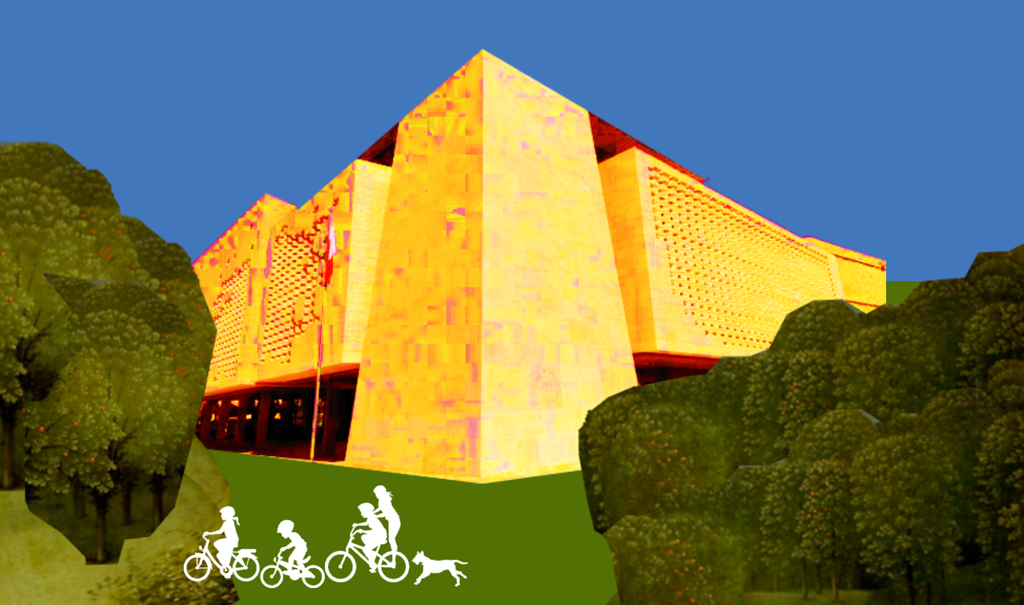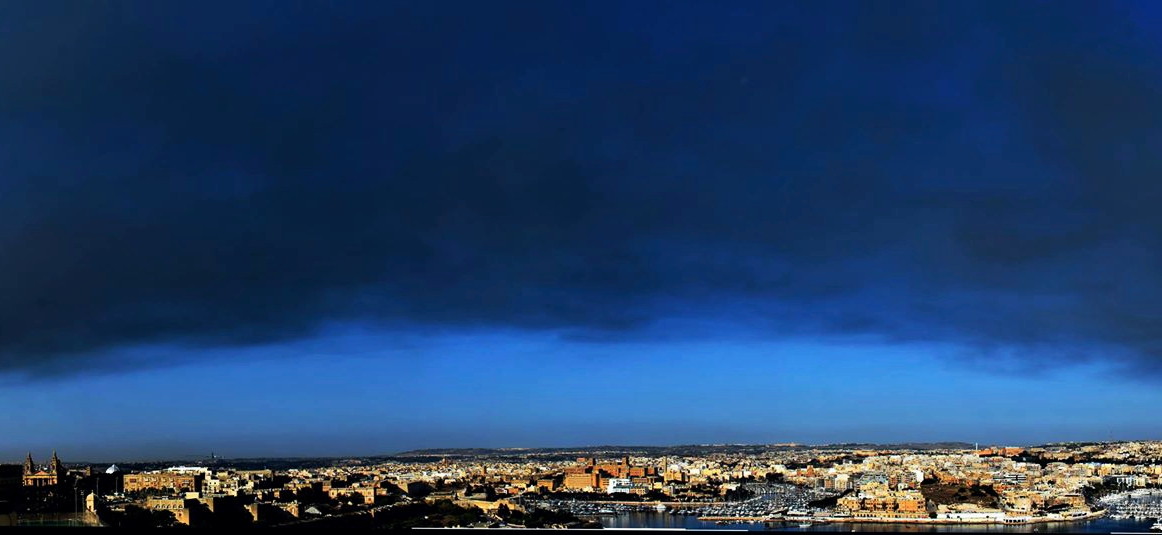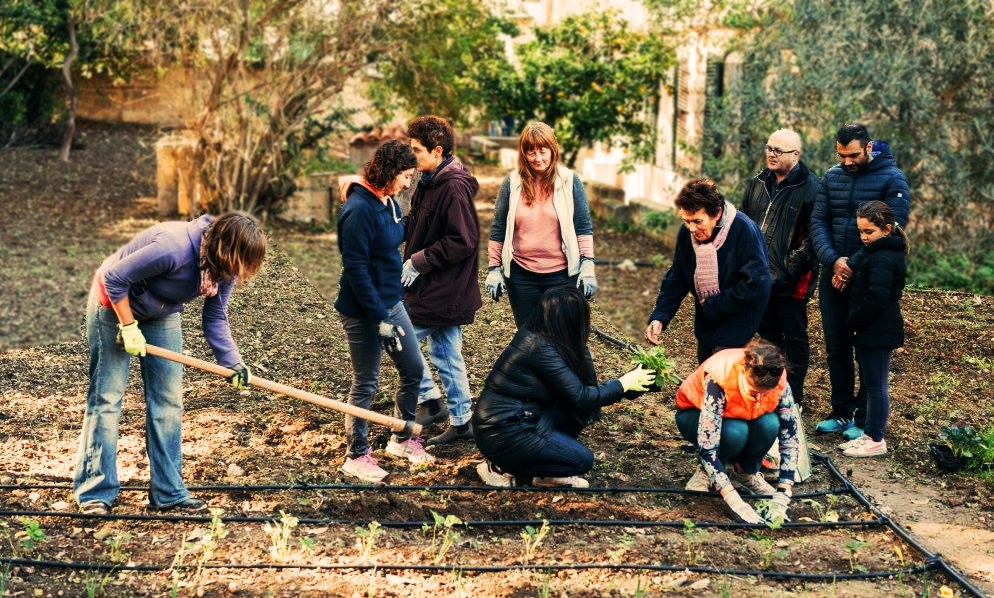
Here are a few suggestions on how we can make Malta a fairer and greener place. The list below is, by no means, exhaustive, but could be just enough to lead to a deeper transformation of our society.
by the IotL Magazine
Collage by IotL Magazine
[dropcap]W[/dropcap]e know it all too well: frenzied development occupies every space on this tiny archipelago and thus threatens our wellbeing. Hardly a day passes without an announcement of yet another ODZ development, accompanied by the photographs of more immaculate historical buildings awaiting destruction. Big business rules supreme while the pledges of concerned citizens are being ignored.
According to the report published by the National Statistics Office titled ‘The European Statistics on Income and Living Conditions’, over 80,000 people in Malta (19.2 percent of the population) are at risk of poverty; this worrying situation is caused by the increasing cost of living. The divide between the richest and the poorest parts of the population is growing. Although the government acknowledges the problem, the issue does not seem to be on the fore of political debates.
The question is: are we doing enough to stand up for our wellbeing? The steadily increasing flow of devastating news drowns in frantic finger-pointing and slowly guides the public to the final stages of grief. Unless the public debate is injected with a portion of sober analysis, stories of ongoing successful resistance to this state of affairs—and, ultimately, proposals for sustainable alternatives—the anger will soon be followed by outright resignation and apathy.
In order to keep our enthusiasm high, we urgently need success stories and sound proposals. In the past few months, Isles of the Left featured a few suggestions on how we can make Malta a fairer and greener place. The list below is, by no means, exhaustive, but could be just enough to lead to a deeper transformation of our society.
![]()
1. Less Whining, More Reflecting
This suggestion may come across as moralistic, yet reflecting—not outbursts on social media—is the necessary first step towards mass mobilizing for a fairer and greener Malta.
Be it about petrol stations on ODZ land, townhouses being pulled down to make space for apartments or hotels, another disturbing highrise that promises nightmares to the residents, cutting off trees or the soaring cost of living, it is essential to reflect on the causes of these issues and, well, our own contribution to these causes. Without a clear understanding of what underpins the challenges Malta is facing, it’s highly unlikely we’ll solve any of them.
Applauding to the ideals of free market economy and valuing individualistic entrepreneurial success are incompatible with our concerns for environment and common good.
Raisa Galea notes that, too often, we criticise the consequences while outrightly approving of the causes. She suggests that applauding to the ideals of free market economy and valuing individualistic entrepreneurial success are incompatible with our concerns for environment and common good. Read her essay “If You Wish to Make Malta a Better Place, Don’t Whine—Act on the Causes!” to learn more.
![]()
2. Moving Away from Economic Growth as a Social Objective
The landmark report by the UN Intergovernmental Panel on Climate Change (IPCC) warns that carbon emissions would have to be cut by 45% by 2030, if the devastating effects of climate change are to be limited. This means that we have only eleven years to radically transform our societies.
Although Malta boasts high economic growth, tackling climate change requires moving away from economic growth as a social objective. This means that the economy ought to shift towards multiple priorities, such as human flourishing and welfare within ecological limits. While the decisive macroeconomic shifts have to take place at the European level, focusing more on sustainability than on growth would certainly be an advantage for an island with little natural resources.
Malta’s obvious biophysical limits themselves are an argument against more economic growth.
Malta’s biophysical limits are more obvious than those of larger countries. For example, we have limited water and land supply; and we are dependent on produce from other countries. It means that, unless the economy intends to exceed these limits at some point, it would definitely have to stop growing.
In her article “Can Economic Growth Ever Be Green? Suggestions for a Post-Growth Malta“, Abigail Muscat suggests a few strategies that Malta could consider to make itself compatible with post-growth. Among them is setting a no net land take target, using the current stock of buildings and halting increase and reorienting investment towards forms of cleaner production.
![]()
3. Implementing a Pilot Scheme for Universal Basic Income
One of few objections to post-growth strategy is that it will translate in loss of jobs. Politicians have been presenting growth as the only way to create more employment—and this is the key reason behind the seeming importance of the growth narrative.
There could be several ways out of the degrowth-vs-jobs conundrum. One such pathway is the provision of a Universal Basic Income (UBI). This would be a small salary for all citizens which acts as a safety net and allows people to invest in themselves.
In the interview “Universal Basic Income Scheme for Malta: Would It Be Possible?“, Geoffrey Saliba shares preliminary results of his research on a possible UBI scheme in Malta. Working age adults (from 16 till retirement age) would need minimum 850 Euros to live on a month to month basis. Pensioners and disadvantaged individuals would receive 950 Euros (a UBI would also free them from the burden of bureaucracy so inherent to the provision of welfare benefits). Children too would receive a small UBI amount (around 200 Euros).
This model would cost between 4.5 to 5 billion Euros annually. The amount represents approximately 40 percent of Malta’s current GDP, which is costly, but feasible nevertheless. Read more here.
![]()
4. Making Waste Reduction a Priority

There are more reasons to reconsider our appreciation of growth and free market economy. One of them is the volume of waste such a model results in. The spark that set off the 31st August Magħtab fire, which blanketed the whole island, was lit decades ago.
In the late 1980s and early 1990s, the years of austere Mintoffian brand of socialism gave way to a frenzy of unbridled consumption. Following EU accession in 2004, Malta had to bring to a halt the glass bottle return and reuse system which was so much part of our society—all in the name of free market. Curiously, this observation was also made by the current prime minister himself whilst speaking to party supporters in Għaxaq where he referred to this decision as when “money won over the environment”.
Mechanisms need to be in place in order to ensure that discarding a broken item will cost more than fixing it.
Martin Galea De Giovanni argues that our prime target must be waste reduction. Initiatives to revive small repair shops which ran out of business due to the throwaway culture need to be encouraged and assisted—mechanisms need to be in place in order to ensure that discarding a broken item will cost more than fixing it. Read his essay “The Great Fire of Magħtab: Smoke Gets in Your Eyes” to learn more.
![]()
5. Designing a Transport System that Provides Equitable, Affordable and Efficient Mobility Options
Millions upon millions of euros are being spent on widening the roads: €17 million for additional road space in Marsa, Żebbuġ and Luqa, among others. Add to that €7 million for the upgrading and widening of Regional Road, and a projected €55 million for the Central Link project. In addition, we are paying a near €200,000 a year for not meeting our emission reduction targets. The proposed Gozo tunnel is another example of this ‘infrastructure for the car’.
Why spend all those public funds on further fuelling our car dependence?
This begs a question: why spend all those public funds on further fuelling our car dependence?
Suzanne Maas is convinced that no single silver bullet solution will magically solve the transport conundrum we have on our hands. We need to look at this problem from a long-term and holistic perspective. While the transport landscape on the Maltese islands is modernising and diversifying, what is needed is the full integration of these modes, not only physically, but also financially, so that they can become desirable alternatives and can be used in a multi-modal mix. Find more suggestions in her essay “Malta’s Transport Conundrum: Alternative Routes to Sustainable Mobility“.
![]()
6. Setting Up a Broad Coalition to Stand Up for the Environment
The situation in environmental spheres is indeed verging on the desperate. Desperate times call for desperate measures and this is why Alan Deidun strongly believes that a grand environmental coalition is urgently needed to counter the unrestrained encroachment onto our open spaces.
The coalition needs to include all those groups that have an interest in maintaining our open spaces just as that. These would range from the obvious choices (environmental NGOs, local councils, at least in many cases, and the Environment and Resources Authority) to the less obvious (hunters, trappers, fireworks enthusiasts). As far as possible the coalition should be shorn of partisan politics.
It is important to keep in mind that such a broad environmental coalition has a great chance to succeed.
It is important to keep in mind that such a coalition has a great chance to succeed. Solidarity and community organising enabled festa enthusiasts to curb development of open spaces for a number of times. 2018 also gave us two success stories: the residents of Żejtun saved Bulebel from yet another development, and Sliema residents forced the developers of Townsquare skyscraper in Qui Si Sana to redesign their plans.
![]()
7. Enabling Policy Mechanisms for Encouraging Social Enterprises

No political party in the current political set-up seem to be willing to tackle the issues pertaining to social and environmental justice. In his essay “Why Malta Urgently Needs Social Enterprises“, Joseph Bartolo argues that concerned citizens need to put their enthusiasm for a better society into practice and build skillful, organised movements capable of administering social and economic aspects with no support from the state.
![]()
8. Establishing a Framework for Decentralised, Publicly Owned Digital Technology
The government seems determined to make Artificial Intelligence and blockchain a significant economic sector.
There are, however, a number of concerns. Considering the role AI already plays in our lives and its near-future effects such as the prospect of mass unemployment, we should be bold in our demands to discuss the possibility of a Universal Basic Income or a Job Guarantee scheme.
The boldest proposal would be to introduce public schemes for data sharing and foster AI technology that benefits communities, is decentralised and democratically owned.
The boldest proposal would be to introduce public schemes for data sharing and foster AI technology that benefits communities, is decentralised and democratically owned. DECODE project, pioneered by Barcelona and Amsterdam, is an admirable example to follow: its aim is to provide tools that put individuals in control of their personal data and which allow choosing between keeping it private or sharing it for the public good.
Transparent democratic data-sharing and AI projects could open doors to communally-beneficial applications, such as fairer alternatives to AirBnB and Uber. Read “Malta & Artificial Intelligence: Challenges and Ways Forward” by Daniel Desira to learn more.
![]()
9. Making School Education Free
Education is a sensitive issue. It goes without saying that no positive change can occur in a society which provides no equitable access to education and where social segregation is palpable.
The sad outcome of the baleful co-existence between free state schools and expensive private schools is that public schools are left with a higher concentration of children from low-income or socially deprived families, and from families with a migrant background: children who are ultimately not deemed fit to rub shoulders with the country’s elite. Needless to say, the vast majority of our country’s political leaders send their children (and grandchildren) to church or independent schools.
In her essay “Parenting Dilemmas: State or Private Schools?“, Rita M. suggests that Malta should follow the example of Finland, a country in which teaching is the most sought-after profession and where going to school is fun. Its schools are radically different from ours: they have no uniforms, no homework, no selection … and (whether privately or government-run) no fees.
![]()
10. Voting for Public Interest

Now, many of you would say: the proposals are great, but no politician would ever implement them. It could be true, but we can change that—your vote has the power! Whereas in a large country a faction of electorate as small as few hundred is a mere drop in the ocean, in Malta this number might be large enough to make a lobby group. It only takes voters to recognise mutual interests and unite to protect themselves.
Standing up to the ripple effect of overbuilding, staggering increase in rent and property prices, air pollution and traffic jams is in the majority’s best interest, since few can escape the negative impact of these developments in a country as small and densely populated as Malta.
It is time to recognise the True Power of Your Vote. It is time to recognise that, united, the Maltese electorate can achieve much more than individually!

I have just attended Woodford Folk Festival in Australia where one of the threads discussed at the Greenhouse Tent convened by Ludmila and Michael Doneman was the redesign of democracy. Many of the actions you identify here began to emerge in that face-to-face process but another issue that emerged without being fully addressed is the concern with ensuring equity of contribution. Unless steps are taken to support the less dominant voices in the conversation, then the more extroverted, articulate voices take over. We need to establish face-to-face processes that are safe and allow each voice to be heard in creating shared action. I realise now that alternative media platforms like Isles of the Left are also fundamental in rethinking democracy, enabling more introverted voices such as my own, and I thank you for setting up such a forum in Malta